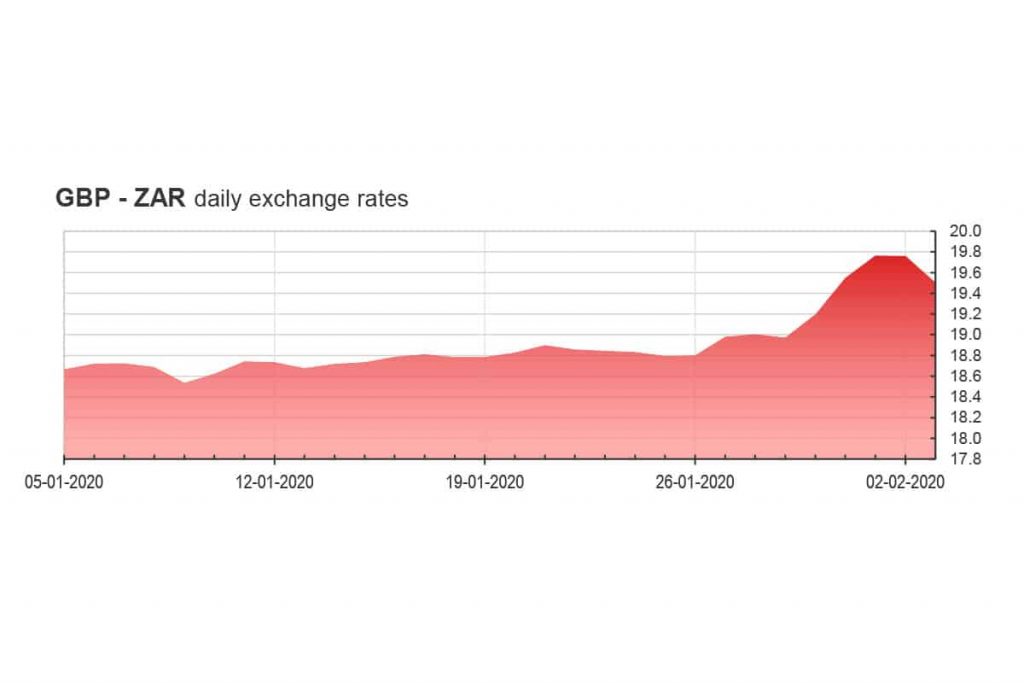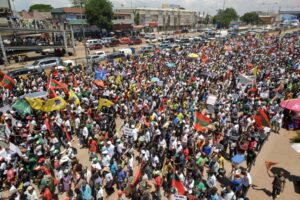Added pressure on the Rand amid power cuts and coronavirus concerns


Image via Adobe Stock
This report is brought to you by Sable International
Last week saw the Rand hover around R18.95 to R19.06 against the Pound Sterling. This came amid continued weakness in emerging markets following the impact of the coronavirus. Losses in emerging markets were led by Asian economies, especially Hong Kong and Singapore, which are closely tied to mainland China’s economy. Emerging market currencies also fell for both Tuesday and Wednesday last week as a reflection of the overall market weakness.
The effect of the coronavirus
By Wednesday, markets started to stabilise as the impact from the coronavirus started abating. The JSE closed higher, following a stronger Wall Street. It was widely expected that the US Federal Reserve would keep the rates unchanged, which is indicative of continued upward moment in the stock markets. This eased the risk-off sentiment on the ZAR for the time being. European markets also displayed some mid-week buoyancy despite the looming Brexit deadline. On Wednesday, through to Thursday, the ZAR displayed some strength against major currencies (hovering at R18.95 to R19.02 against the GBP).

South African growth concerns came to the fore during the latter part of the week as Eskom continued implemented rolling blackouts on Thursday and Friday. This continued into the weekend. Growth concerns were also evident in the fact that South African private sector credit reportedly slumped to a nine-month low. This may indicate that a lower inflation rate is imminent as the money supply dwindles. These factors will continue to pressure the ZAR lower for the next few weeks.
Market event calendar:
Wednesday 5 February
SA purchasing managers index (PMI)US balance of trade
Thursday 6 February
SA business confidence
Friday 7 February
SA foreign exchange reservesUS non-farm payrolls








